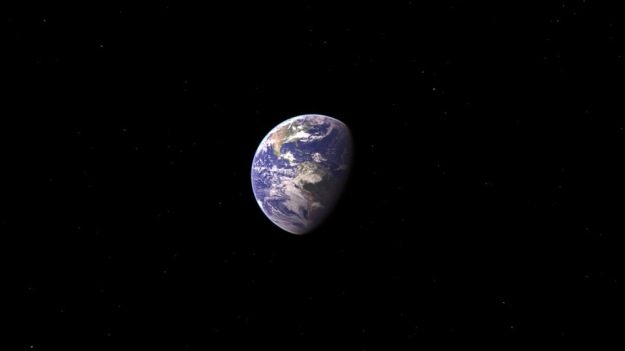
“Odd,” he said.
“Odd?” She said.
“I think I am seeing something in the simulation!”
“Really, show me!”
“Oh, it passed. Interesting culture. Got all the way to meta communications. And there were several memes focused on empathy. But they degraded.”
“Sad…”
“The planet will recover. Let’s do lunch!”
Author Archives: Harald
Seeds of Destruction
The internet and social media spanning the world with billions of participants is changing the nature of our culture and civilization. Due to its fast spread its dramatic impact is likely higher in a shorter period than the invention of writing and the printing press. Film and radio as propaganda media had a dramatic impact on WW I and WW II. Will social media be seen as the fire that destroyed Western Civilization due to its pervasive impact?
In my view one of the most destructive culprits in the universe of social media is Facebook. It does not do this unknowingly.
Facebook’s seeding of social destruction is by cynical design. The system’s true monetary value is your data and ATTENTION.
ATTENTION is generated by siloing the user base and feeding each silo information that is bound to excite. It either fervently supports the shared outlook or fuels hatred of the opposition. The Facebook algorithm selects the user postings and seeded information from other sources in front of you based on deep analysis. If you look at the placed information, it is aimed at generating division even if it appears to support your point of view.
The silo user base amplifies this attention.
HATRED of the opposition is the strongest emotion here. Although we think we are debating facts, they move to the background. I should also note that the rules we use to view the facts in relation to the world are distorted impacting our perception of “truthiness.” More about that in another post.
In other words, Facebook’s SHAREHOLDER VALUE IS HATRED. It has earned them billions!
It is very destructive in its pervasiveness.
The destruction is on several levels:
- The resulting divisiveness is poison to rational discourse.
- Facts are no longer important, beliefs are.
- It prevents rational resolution of issues based on compromise.
- Trust in institution or experts is undermined and destroyed.
- It leads to extreme leadership and demagoguery, which play into the tribal hatred. Centrism cannot compete in this atmosphere.
- Eventually the polity is destroyed, because it cannot any longer be governed and function.
This is Stephen Bannon’s agenda. We are mid game in this regard, but well along the way of destroying institutions and regulation forged over the last decades and centuries. In fact, our Separation of Powers is no longer working! This is a constitutional crisis or at least Constitutional Rot. The real problem is not only that many people are seriously suffering (economic inequality) or dying (lack of healthcare,) but we are not furthering pace and the worldwide action required to solve climate change. And the window for climate change action is closing. Even if we get out polity back into a state of health, it might be too late to avoid catastrophic consequences, which will especially impact poor nations and lead to further global instability.
Although we seem to act like a “Banana Republic,” we are the largest economy in the world. Our leadership, action or inaction count in a dominant way.
To paraphrase Cato the Elder, Facebook must be destroyed,
Note: I originally posted this in response to a concern about social media’s destructiveness on the polity on Facebook. After some thought I had to elevate my response and start moving my focus away from Facebook only using it as a means of distribution and getting attention.
ps I first was alluding to the “Eve of Destruction” by Barry McGuire, but then also found the Sons of Aeon, a melodic Death Metal Band wailing from Finland. My son really turned me on the genre, which actually has some very thoughtful if dark lyrics and exquisite instrument playing. I have become a fan of Katatonia (lately more progressive rock).
Here then the lyrics for Seeds of Destruction:
Sight into the future… Does not exist
We need no prophets to realise it
Next breath you’re about to take
Could be your last
Drown yourself in hatred, forget the past
This world of confusion
Where moral is just a word
Meaningless and forgotten…
Thing we should not talk about
Souls for sale
Dreams of yesterday… Drifting away
A glimpse of humanity… Does not exist
See the smile on their faces… You’ll realise it
Filth holds the reins of power
Rivers are turning red
Irrigate the fields of hate
Sow the seeds of destruction
There will be blood… Where dead roses bloom
And a quick taste of Katatonia from their track Last Song Before The Fade from their album The Fall of Hearts:
…
Who’s in control
Spite
So cold in this light.
Reflective summary
Froze me in a frame
My time had run out before the future came
Depart from insight
Breach was made.
…
For good reason this generation does not sound very hopeful. Time for some peaceful “Hearts of Space!”
The Meaning
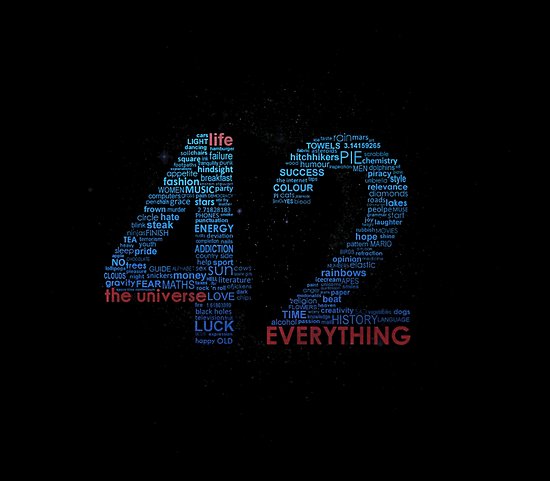
Meaning in its narrow definition is crucial to our communications. In normal use words and sentences are primarily used for their meaning. Although in art we might use language for its sound, in normal writing or conversation we use it it to communicate a thought, an intent, an observation, or a request.
Language is shared. A key component of learning the language is not just about the sound of the words or the grammar ruling its assembly, but what its shared meaning is both in the word’s denotation as well as it connotation. It is based on the assumption that there is a shared reality and a shared set of internalized models of that reality.
But this is not really what I want to write about.
I want to talk about the word meaning with another connotation such as the “meaning of life, the universe, and everything.”
This kind of question is interesting and probably uniquely human. It is a meta level inquiry that moves the question of meaning to something that has this at its core and purpose – language – and applies it to a process or thing that as far as language is concerned has no other relevancy beyond its existence.
Life and the universe simply are as is everything.
As humans we see purpose and, by abstraction, meaning in our creations. The purpose of a hammer is to fasten a nail. Nailing is what makes a hammer’s existence meaningful.
But we also translate the same process to stuff that is simply there and cannot be easily explained – life, the universe, a sudden illness, or death.
We wonder, what’s the point? But there is no point.
It’s one of the reasons we invented religions. It’s a subject of philosophy.
But in the end this kind of meaning is only meaningful to each of us personally. There can never be any proof for the “meaning of life, the universe, and everything.”
Not just here: Post-truth politics is alive and well in Brexit Britain

This is a fundamental problem of current politics amplified by social media. It is a fertile ground for fascist countries to seed discord. We need to get beyond it to survive as democracies.
“The various tribes have consistently hidden behind principles to avoid endorsing an option that is *actually* on the table — or building a consensus behind their preference. Worse, they have decided to ignore the real-world problems that accompany their solutions.”
Post-truth politics is alive and well in Brexit Britain
Unthinkable – The Atlantic: 50 Moments That Define an Improbable Presidency

I am already looking back at a fairly long life. But the history of the last two years has created a horrific reality both surreal and seemingly improbable. It is like a nation and the world have completely lost reason.
I am still optimistic enough that eventually the pendulum will swing back toward fact and science based reasoning. Recent elections and the freshmen class in Congress give me a lot of hope. But the State of the Union is dire. I am now fairly certain that what we see in the US and UK – once beacons of the free world – is not just random action but a carefully staged sequence of events driven by ingenious manipulation of an evil oligarchy coupled with enormous short term greed and stupidity of our elites and media. There is also a healthy dose of gullibility introduced by lack of education in basic humanities and reasoning.
The distrust of “experts” is fatal in a world driven by complex science and engineering in a global economy.
In short, this is all a huge mess. The real tragedy beyond the suffering of the middle and lower income groups plus children in concentration camps is the insane pace of the approaching point of no return for our climate.
A significant fault lies with Donald Trump and his enablers in the Senate – all equally guilty. But media continues to fail to understand the implication of our “Attention Culture.”
Here is a collation of 50 Moments that defined a most surreal seemingly unthinkable reality: The Atlantic: 50 Moments That Define an Improbable Presidency
The key to everything
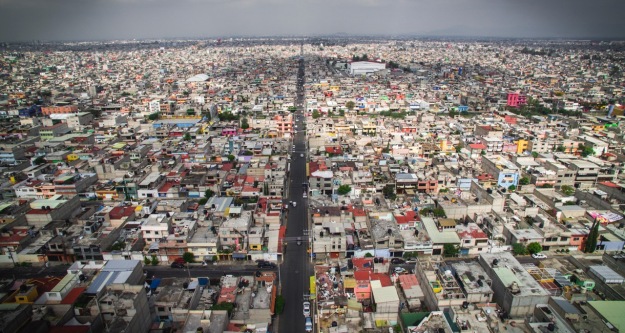
via 3QuarksDaily – NYBooks: The Key to Everyting
Freeman Dyson reviews Geoffrey Wests book on “Scale: The Universal Laws of Growth, Innovation, Sustainability, and the Pace of Life in Organisms, Cities, Economies, and Companies”
“Geoffrey West spent most of his life as a research scientist and administrator at the Los Alamos National Laboratory, running programs concerned not with nuclear weapons but with peaceful physics. After retiring from Los Alamos, he became director of the nearby Santa Fe Institute, where he switched from physics to a broader interdisciplinary program known as complexity science.”
Freeman’s review nicely summarizes the book for some heady reading. But his view on the subject is not without criticism driven by differences in philosophy:
“The choice of an imagined future is always a matter of taste. West chooses sustainability as the goal and the Grand Unified Theory as the means to achieve it. My taste is the opposite. I see human freedom as the goal and the creativity of small human societies as the means to achieve it. Freedom is the divine spark that causes human children to rebel against grand unified theories imposed by their parents..”
I share Freeman Dyson’s view. But this is still worth reading and stimulating to think about.
The rise of the ambient video game
 via 3QuarksDaily – TheOutline – The rise of the ambient video game – Link in the Korok Forrest ready to replace the Master Sword into the stone to start his Master Trials.
via 3QuarksDaily – TheOutline – The rise of the ambient video game – Link in the Korok Forrest ready to replace the Master Sword into the stone to start his Master Trials.
Lewis Gordon describes his recurrent experience with Nintendo’s hit and truly revolutionary “The Legend of Zelda: Breath of the Wild.” He compares it to Ambient Music, which is also a genre I love.
Talking about the convergent emergence of video games and ambient music in the 1980s, he writes, “Shigeru Miyamoto, wanted to draw on his childhood experiences of climbing mountains and discovering lakes in the countryside around Sonobe, a town roughly an hour’s drive from nearby Kyoto and Osaka. His wish found expression in the original Zelda’s large, nonlinear and mythical pre-modern Japan. The designers, coders, and artists crafted a crude 8-bit landscape with the emerging computer-chip technology, the game’s deep, verdant greens a far cry from the concrete and steel dominating Japan’s cities and towns at the time.”
“Japanese ambient music of the 1980s reflected such concerns. Hiroshi Yoshimura released the album Green in the same year as The Legend of Zelda, crafting a work of almost unfettered naturalism, lush with shrubbery and the drip of water.”
“The Legend of Zelda: Breath of the Wild, […] has incredible grass. It undulates gently in the wind while the sun paints its tips yellow. Meadows turn into shimmers. Holding forward on the controller jostles Link, the game’s boy-hero protagonist, into a light jog, his weight only just displacing the greenery around him. In the evening I sit on the couch, letting the colours and sounds of the digital world wash over me, allowing my brain to slowly decompress. It’s a relaxation activity that slips nebulously into self-care, the video game equivalent of putting an ambient record on.”
This echoes my experience. I find myself drawn back into Hyrule after taking my time (more than 640 hours!) to complete the game and DLC in both regular and Master modes. I look for more Koroks (little surprises and puzzles hidden throughout the open realm,) help people in distress along the path ways, try to catch a better horse, or just watch a sun set on a mountain top with a dragon flying in the distance.
It’s the ambience of the game redeeming reality (to quote Kracauer) that draws me back and back again.
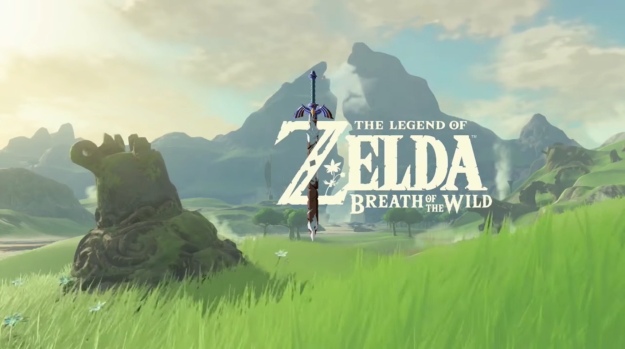
Ursula K. Le Guin has passed, No Time to Spare
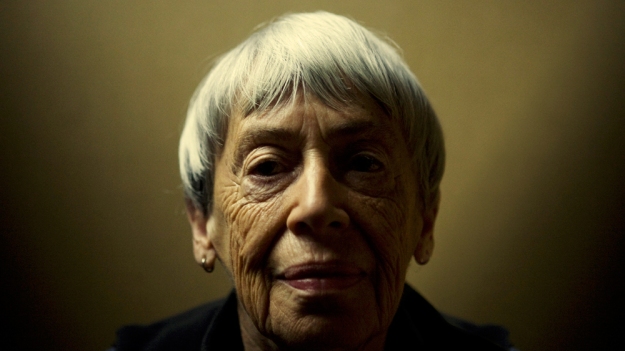
I was about to celebrate another year of survival when I read about Ursula Le Guin’s passing. I have read her works since early adulthood starting at 17 with “Left Hand of Darkness.” It was a heady time. I had just arrived in my new country from Germany and was trying to adjust and survive. But her book and later “Dhalgren” by Samuel Delany (discovered on a grocery store bookshelf !) in 1975 opened new vistas. I had been reading Science Fiction all my life. But then I became more deeply receptive to the thoughts and concepts. I have been a reader since then and have entertained the thought and desire to write myself.
I should note that this is being posted way late due to clogged MacJournal pipes (author error.) I have been reading a lot of ULK’s non-fiction. More on that RSN,.
Dude, you broke the future – a talk by Charlie Stross
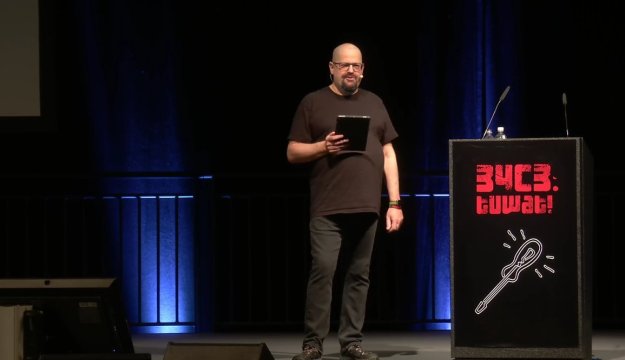
Charlie Stross gave a talk at the 34th Chaos Communication Congress in Leipzig, December 2017. It puts our current history into a larger context. It includes a fresh view of AI as it has been with us for centuries in the form of corporations!
A real eye opener worth reading! Dude, you broke the future!
You can also watch the talk on youtube.
Dig yourself out!

Photo by Vincent Guth on Unsplash
Not just for millennials!
A Reflection on How I Dug Myself Out of the Millennial Mental Health Decline:

